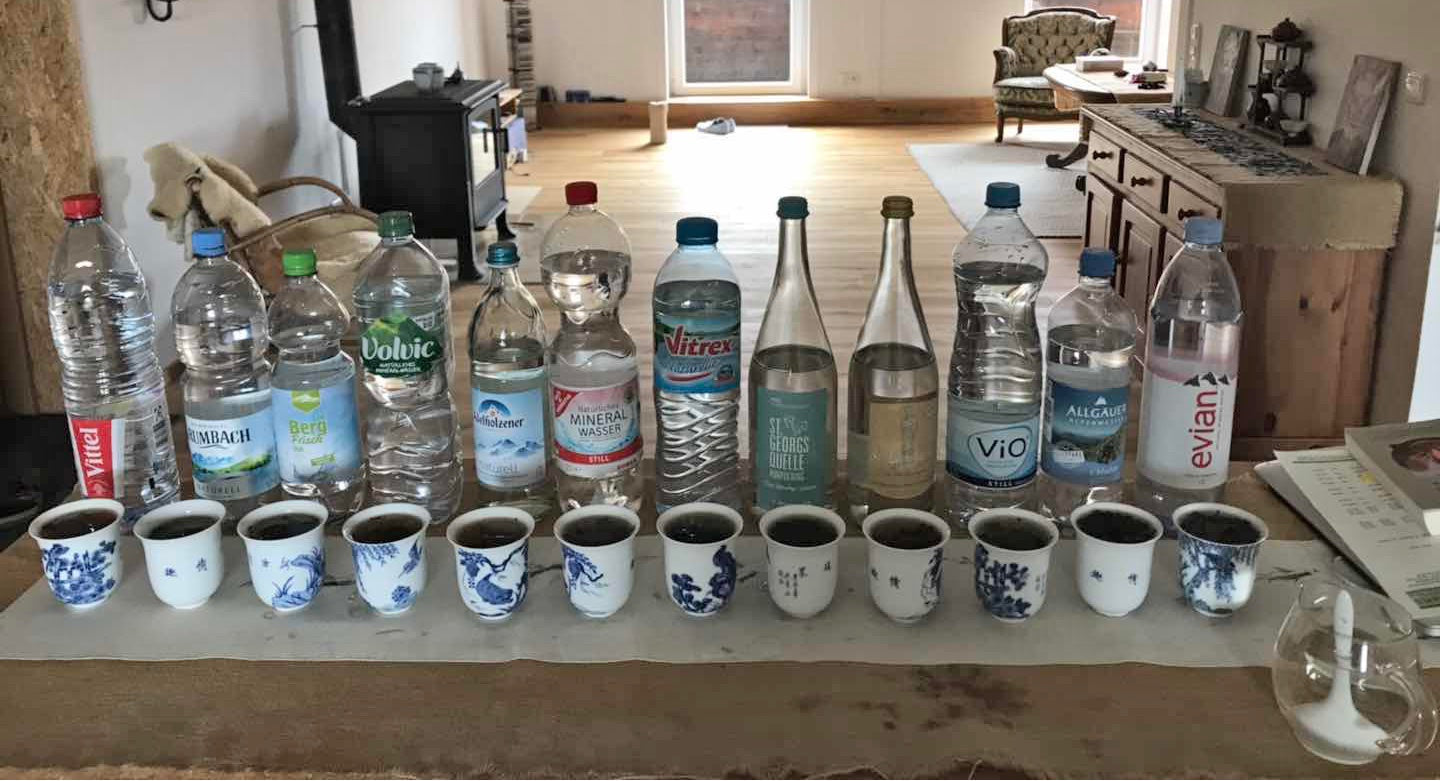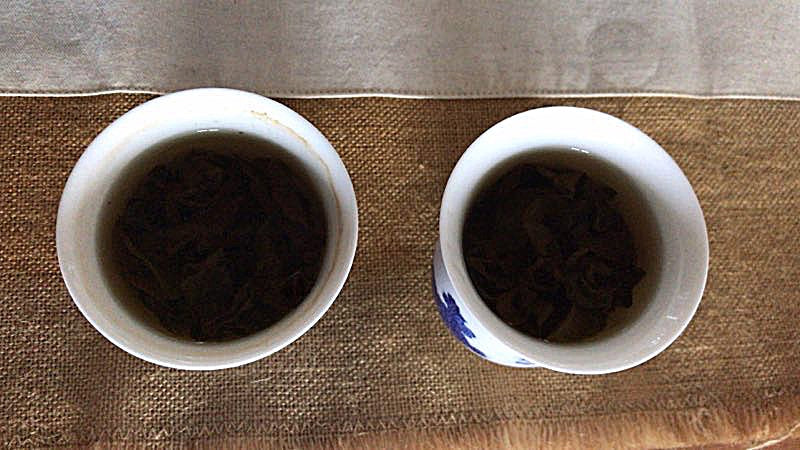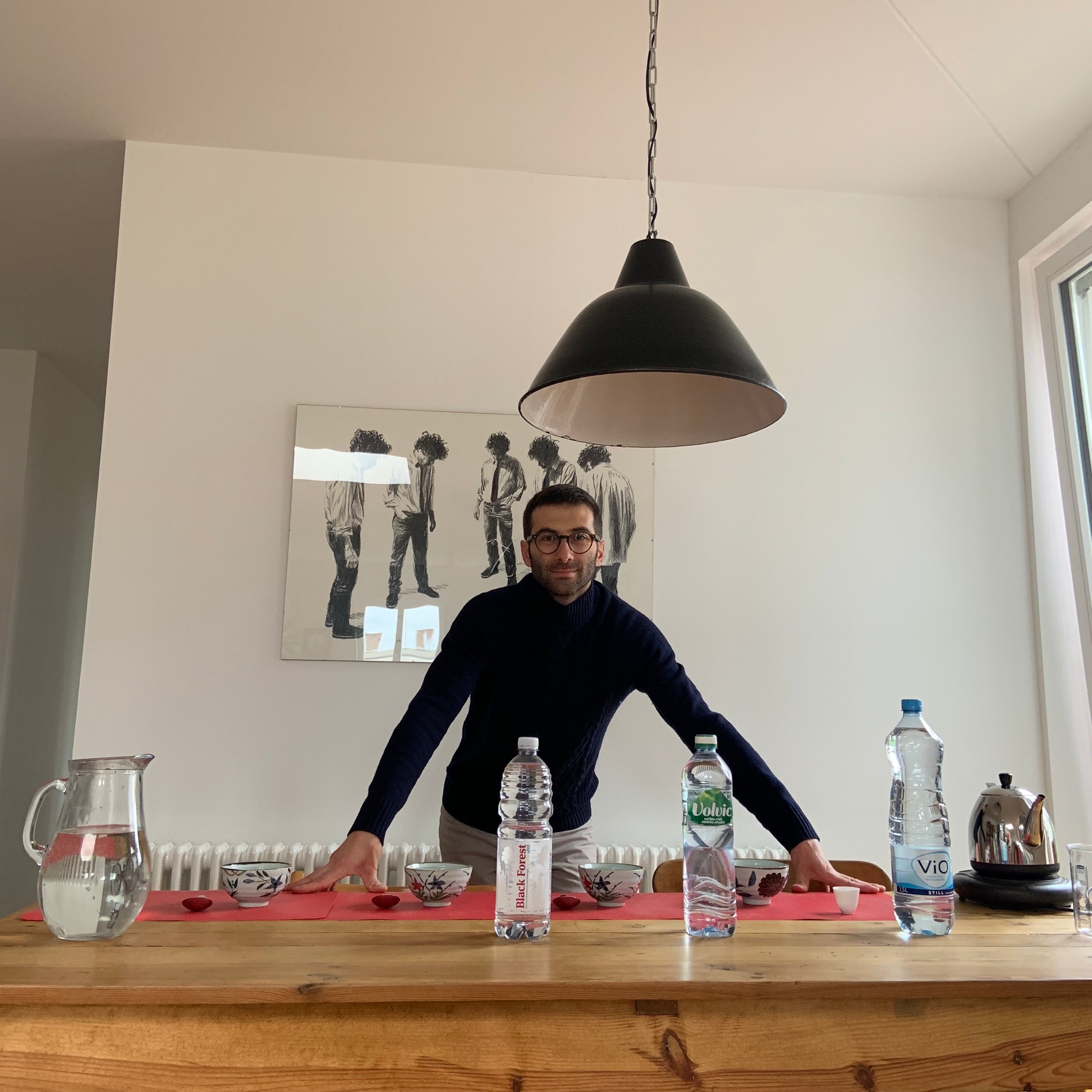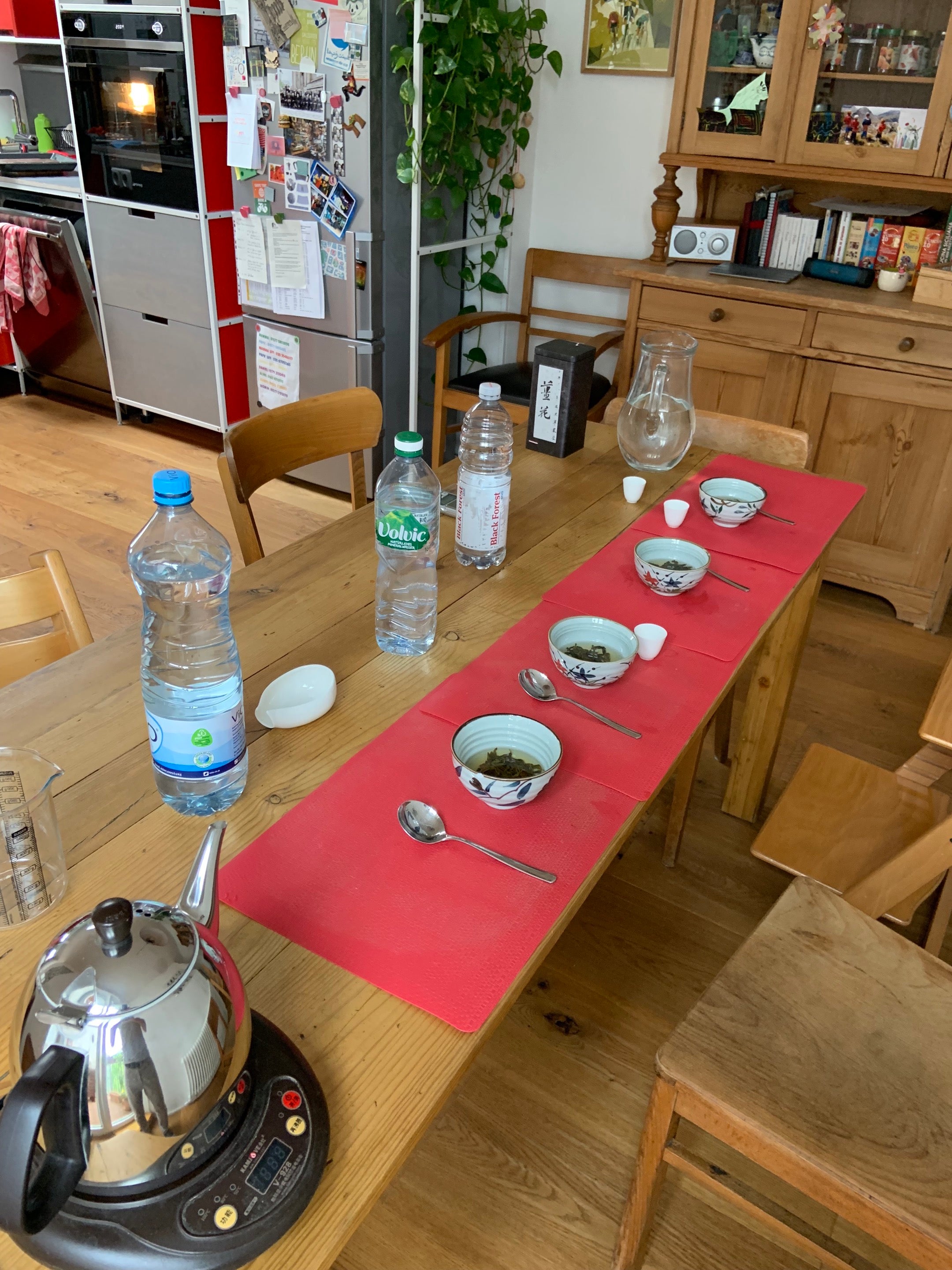Which water is best for tea?
There is no life without water, because water is needed to make tea...
Over 99% of a cup of tea consists of water; how does it affect the taste?
Lu Yu wrote in the 8th century about the decisive role of water: spring water is the best, followed by river water and well water. Today we don't have to ride long distances on horseback to try different spring waters. Benjamin experimented for us at home and infused one of his favourite teas in different waters.
Conclusion
-
Water with low calcium (<70 mg/L) and low hydrogen carbonate (<170 mg/L) is best. Tea flavours are shown to their best advantage in the cup; the infusion is clear and pure; the taste and body balanced. This water convinces with both complex and delicate teas. On this page you can compare the mineral content of different waters.
-
Best water: Vio (Apollinaris) from the Lüner spring in Lüneburg, is our favourite, followed by Black Forest.
-
Water with very few minerals is not suitable. The infusion loses body, substance and tastes too flat. Brita filters can therefore have a negative effect on tap water with low mineral content.
-
Volvic is controversial: some find it good, others not at all. With Taiwan Oolongs and Wuyi Rock teas it could result in acidic infusions.
Allgäu, Southern Germany, 11 May 2019
THE TEA
Cui Yu, vintage 2012, traditional Taiwan Oolong. Very aromatic, complex, roasted. 3 grams of leaves per tray.
THE WATER
12 different spring waters as well as Allgäu tap water, both from the tap and filtered by Brita filters. 150 ml per bowl, one minute steeping time, 96 degrees (water in the mountains boils at a lower temperature).
The bottled waters under examination:
- Vittel
- Krumbach
- Berg Frisch Allgäu
- Volvic
- Adelholzener
- Gut+Günstig (Edeka)
- Vitrex
- Georgs
- Leonhards
- Vio
- Allgäuer
- Evian
 The bottled waters under examination.
The bottled waters under examination.
"Hey, it's crazy man, I never thought it'd make such a big difference. The Volvic stands out so much. The tea tastes sour, just like the acidity I don't like in many rock teas".
ran Benjamin's reaction over a WeChat voice message. For a few years now, he's been repeating to me how first-class rock teas (Wuyi Yan Cha) and Taiwan oolongs had fully tasted to him in China and then how, back in Allgäu, the infusions only resulted in disappointment. The teas lost a lot of depth, aroma and became clearly sour.
For Taiwan oolongs, the blame was first placed on the water temperature. It is important to brew them in water at 100°C to extract the whole taste from the leaves. But this is not possible in the mountains. I myself live 1700 meters above sea level, where the water boils at 93°C. I've almost stopped drinking Taiwan Oolongs at home.
After today's experiment, Benjamin is convinced that the choice of water plays an even more important role than its temperature, at least for aromatic teas.
The traces of water containing minerals can be seen at the edge of the cup, as the tea colours the residues. 
On the left, the cup with Vitrex water, clear traces are visible. On the right, the cup with Adelholzener, mineral-poor water which leaves no traces.
But that doesn't mean you have to prepare tea with distilled water! The next comparison with tap water will show this.
Conclusion: tap water, Brita filter and Volvic are not suitable for tea preparation, at least not for traditional Taiwan Oolong teas.
Editor's note: Jens, a tea friend of ours with many years of tea experience, finds Volvic very pleasant and suitable for almost any tea. Benjamin, however, was mainly bothered by the acidity of Volvic in combination with Cui Yu; he admitted that Volvic, with its low mineral content, was neither dull nor impure and could therefore go well with other teas. I will continue to experiment with Volvic, see below. In addition, he can also get along well with Brita, given the very hard water in Munich.
The water in Allgäu is not extremely strong and the use of a brand new Brita filter has almost turned it into distilled water. In my previous apartment, however, the water was so extremely hard that the Brita filter made a significant improvement. I would therefore recommend that you try it at home, as tap water varies from place to place.
Benjamin liked Vio (Apollinaris) from the Lüner spring in Lüneburg most. The acidity was not expressed too much and the classic taste of Cui Yu was, on the other hand, pleasantly present, clean, pure.
Here are the results of the laboratory tests of the Vio water. Similar waters should be similarly good for your teas.

Mineral content of Vio water, winner of our experiment.
Berlin, 25 May 2019
I am briefly visiting Berlin and take the opportunity for a water experiment. To be elected: Vio and Black Forest, the favourite waters of Benjamin and Jens respectively; Volvic, the controversial water; and Berliner tap water.

Comparison between two top waters (Vio and Black Forest), Volvic, and Berliner tap water.
Three teas, a Dancong, a Yan Cha, and a very fine green tea are prepared. The finer the tea, the more important the water quality, especially for light, delicate varieties.
With the Oolongs, the difference between the three spring waters is hardly noticeable. They all go very well with it and stand out in comparison with tap water, and clearly so. Tap water covers the aroma of the leaves and tastes dull. Especially with the Dancong, the difference is very big: with tap water it tastes like an everyday tea; it is however a very high quality one; its complexity and variety of aromas only comes to the fore with the spring water.
With green tea, the difference between all teas is noticeable. Vio tastes best to me: very pure and sweet. After more than ten minutes brewing time and several sips only little water and many leaves remain in the cup; but the tea still tastes sweet! With Black Forest, the bitterness is noticeable, and with Volvic even more. Not extreme, but definite. Tap water should be avoided completely with this fine tea.
Written by Gabriele






